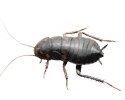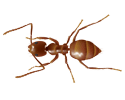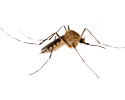Houston Ranks Number 7 of Worst U.S. Cities for Mosquitoes
While we were spoiled with some very warm winter days this year, those temperatures unfortunately result in some negative consequences when it comes to the pest community. Typically with warmer winters, we see an earlier start to mosquito breeding, with an increased population. Mosquitoes are not only a nuisance, but can also be very dangerous when it comes to transmitting diseases. Here are some answers to your frequently asked mosquito questions.
Is Zika a Concern This Year?
In Houston, the Zika virus is still a big concern. Houston is number 7 on a new ranking of worst U.S. cities for mosquitoes, and Texas as a state is reported to have had 326 cases of Zika in the past 2 years.
Texas health officials expanded recommendations regarding Zika awareness and treatment. If you are experiencing symptoms (fever, joint/muscle pain, eye redness, rash, fatigue) especially during pregnancy, it is highly recommended that you seek testing. If you are pregnant and have travelled to areas of frequent Zika transmission it is also recommended that you get tested.
Which Mosquitoes Carry Zika?
The Aedes Aegypti mosquito is known to carry Zika, among other disease like dengue fever and chikungunya, and is common in the Houston region.
Genetically modified mosquitoes:
In order to combat mosquitoes and the risk of disease, Houston officials are attempting to negotiate with a British biotech company to release mosquitoes that are genetically engineered to produce offspring that die. In field trials in Brazil, Panama, and the Cayman Islands it is reported that the introduction of modified mosquitoes have reduced the Aedes population by up to 90 percent in each location.
How Can I Prevent Mosquito Bites?
- Standing water is mosquitoes’ favorite breeding ground, and they only need ½ inch of water. This means it’s important to empty containers where water can accumulate, such as bird baths and trash bins, and repair leaky pipes and outdoor faucets.
- Keep grass cut short and landscaping accents such as shrubs and bushes trimmed to eliminate harborages.
- Screen all windows and doors. Repair even the smallest tear or hold to ensure mosquitos cannot enter.
- Minimize outside activity between dusk and dawn, when the majority of mosquitoes are most active. The Zika-carrying mosquitoes (Aedes Aegypti) are active during the day though, so maintain diligence.
- It is best to use repellant containing DEET, picaridin or oil of lemon-eucalyptus when outdoors.
- Growing natural mosquito repelling plants – such as basil, lavender, peppermint, sage, and rosemary – in your garden is also a good idea to keep mosquitos off your property.
Mosquito Treatment from Certified Professionals
Minimizing your property’s mosquito population is a difficult task without the help of a professional. A DIY solution is not the most effective method and can even be harmful if done the wrong way. Holder’s mosquito control methods keep the health and safety of our customers as the highest priority and we only use products registered with the EPA for pest control use. Our professionals are trained and licensed to ensure the best service possible for our clients.
CONTACT US
Houston Ranks Number 7 of Worst U.S. Cities for Mosquitoes Serving
Houston
Beaumont | Conroe | Spring | Pasadena | The Woodlands | Richmond | Galveston
Baytown | Bryan | Cleveland | College Station | Cypress | Pearland | Sugar Land
Home » Houston Ranks Number 7 of Worst U.S. Cities for Mosquitoes



